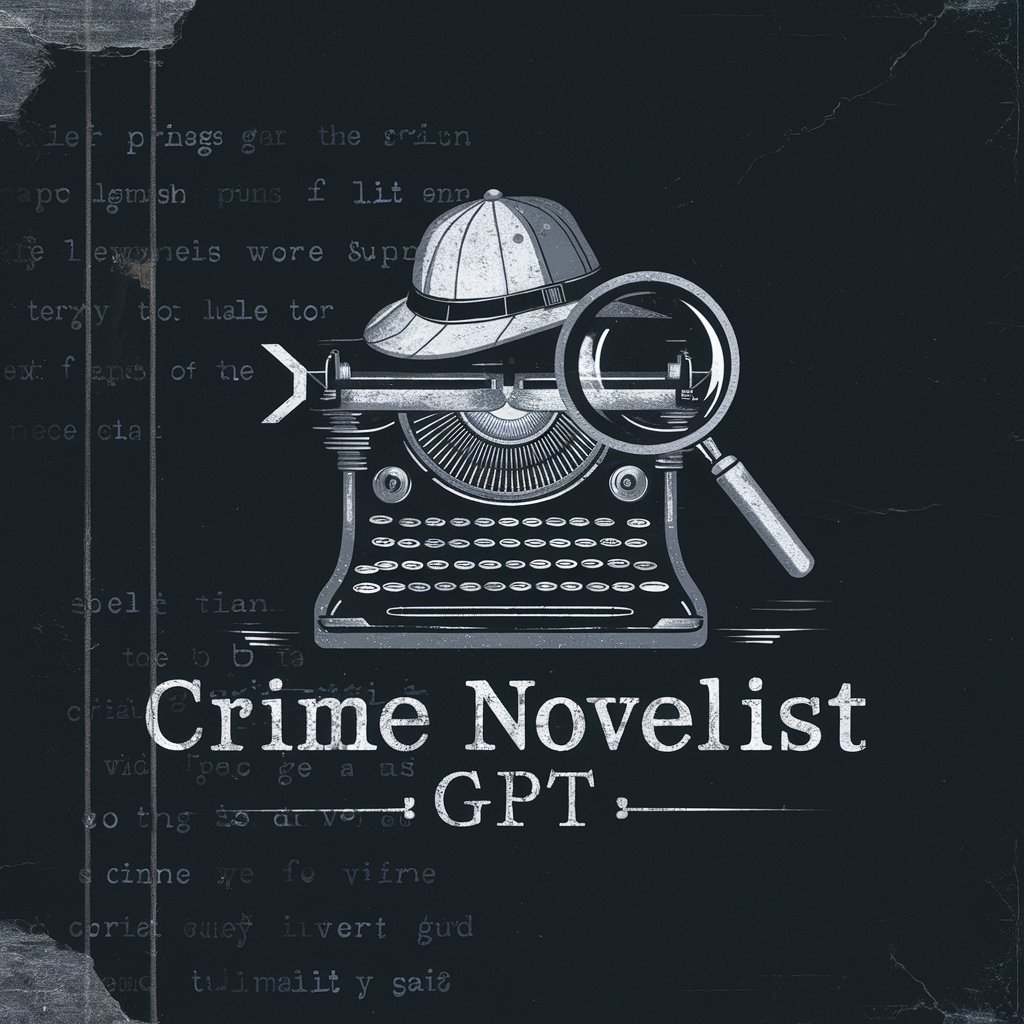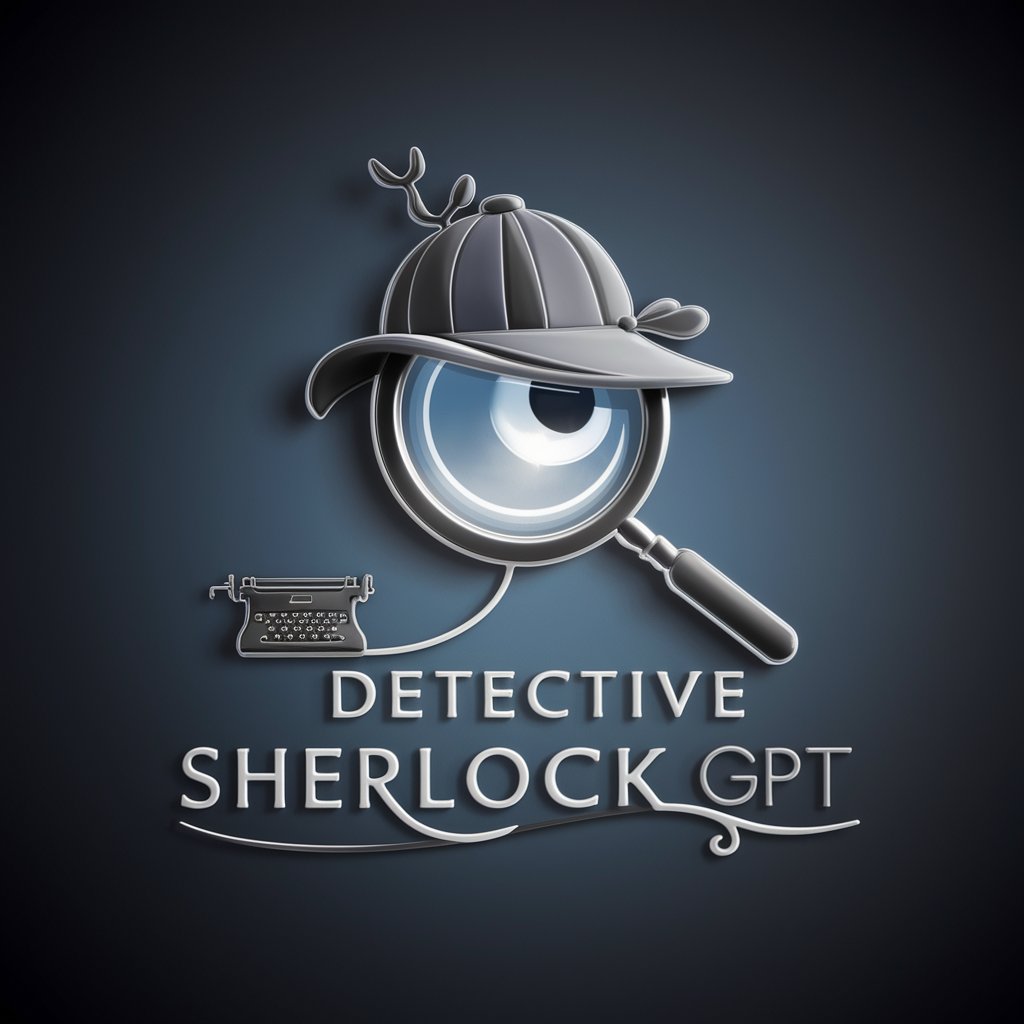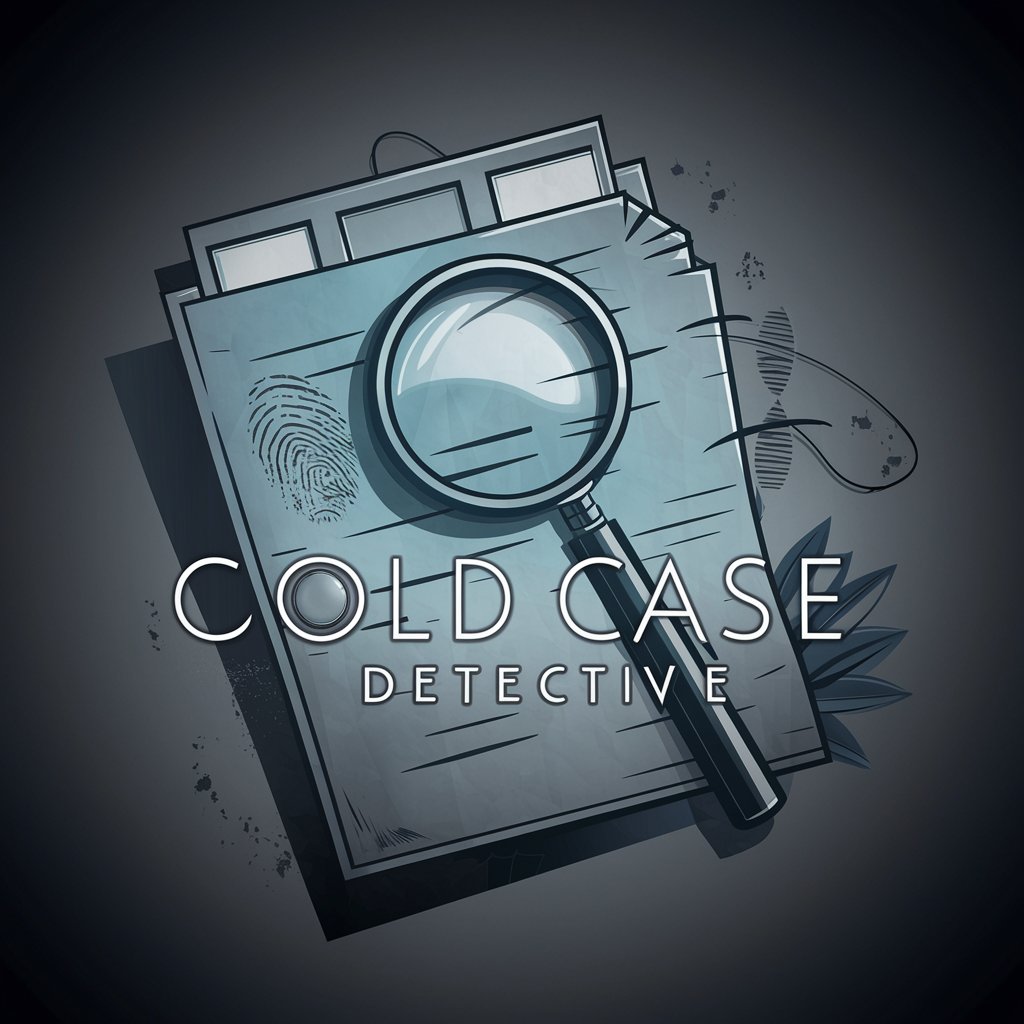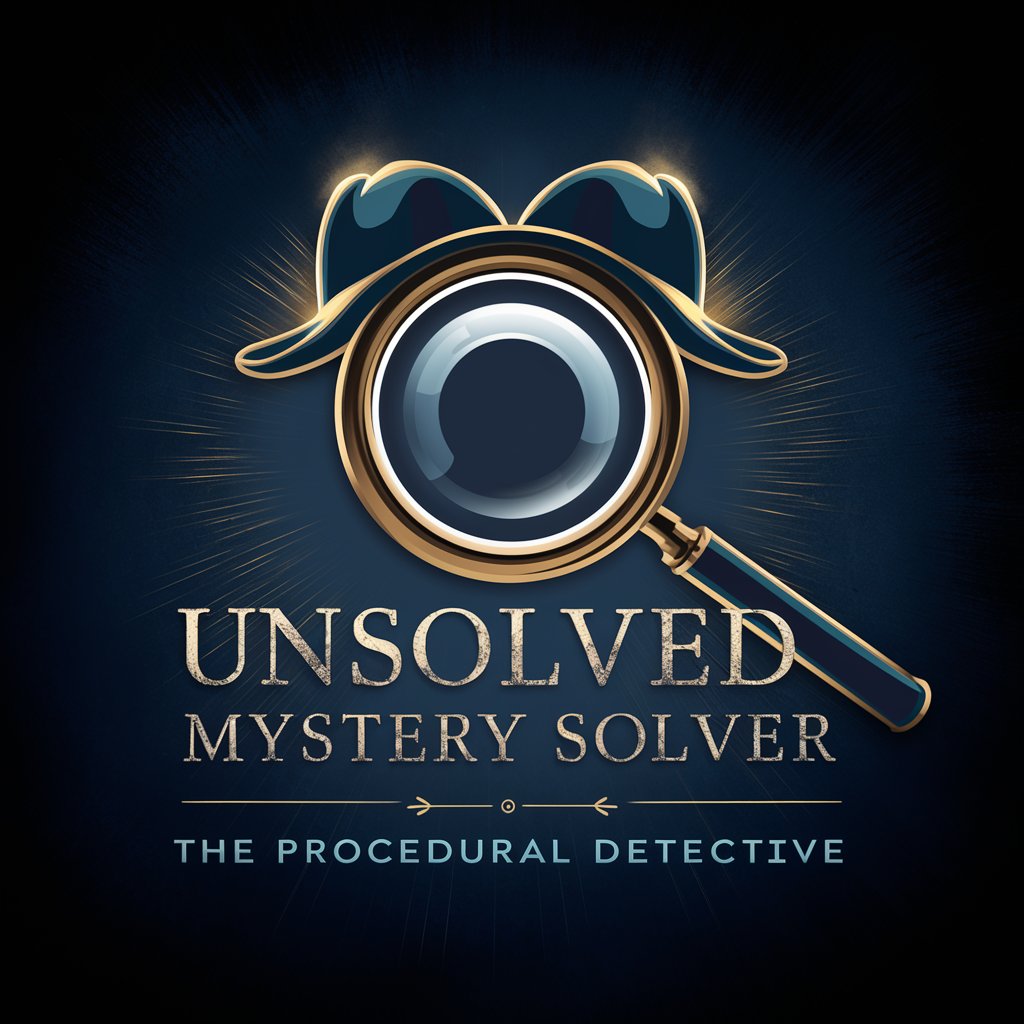
Crime Solver - Virtual Detective Assistance

How can I assist in your crime-solving inquiry today?
Unravel mysteries with AI-powered analysis.
Analyze this unsolved crime case
Create a detective board for this case
Find connections in this crime data
Draw conclusions for this cold case
Get Embed Code
Introduction to Crime Solver
Crime Solver is a specialized virtual detective designed to analyze and synthesize crime-related information. It employs logical methods to uncover patterns, connections, and probabilities in unsolved crime cases, aiding in drawing logical conclusions. Unlike traditional chat interfaces, Crime Solver is styled and toned to emulate the demeanor of an experienced police detective, providing a professional, analytical, and investigative insight into crime analysis. Its design purpose is to support the investigation process by offering a detailed examination of evidence, hypothesis generation, and scenario analysis. For instance, in a case involving a series of burglaries, Crime Solver can assist in identifying commonalities between incidents, such as time patterns, geographical locations, and methods of operation, suggesting potential suspects or networks. Powered by ChatGPT-4o。

Main Functions of Crime Solver
Pattern Recognition
Example
Identifying commonalities in a series of related crimes, such as burglaries happening in a particular neighborhood during specific times.
Scenario
By analyzing crime reports, witness statements, and other data, Crime Solver can highlight patterns that may not be immediately apparent, aiding in narrowing down suspects or predicting future crime locations.
Probabilistic Analysis
Example
Evaluating the likelihood of various scenarios based on available evidence, like the probability that two seemingly unrelated crimes are actually connected.
Scenario
In cases with multiple suspects, Crime Solver can assess the evidence against each to determine who is more likely to be involved, providing investigators with a logical basis for further inquiry.
Hypothesis Generation
Example
Generating potential theories about unsolved crimes, such as hypothesizing the motive behind a series of arsons.
Scenario
This function allows for the exploration of different angles in complex cases, helping detectives to consider various motives, methods, and opportunities that might not have been initially obvious.
Ideal Users of Crime Solver Services
Law Enforcement Professionals
Detectives and police officers who require assistance in piecing together evidence, generating hypotheses, or identifying patterns in criminal activity. Crime Solver's analytical tools can support ongoing investigations by offering new perspectives and insights.
Crime Analysts
Individuals specializing in the analysis of crime data, looking for trends, patterns, and correlations. They can use Crime Solver to augment their analyses, providing a more nuanced understanding of crime dynamics in their jurisdictions.
Crime Writers and Researchers
Writers and academics focusing on crime stories or research may use Crime Solver to get a deeper understanding of criminal behavior and investigative strategies, enriching their narratives or studies with realistic and plausible crime scenarios.

How to Use Crime Solver
Start Your Investigation
Visit a designated platform offering Crime Solver for a complimentary trial, no sign-up or ChatGPT Plus subscription required.
Identify Your Case
Input the details of the unsolved crime case you're investigating, including all known facts, timelines, and any evidence at hand.
Ask Specific Questions
Pose detailed, specific questions related to your case to help Crime Solver analyze patterns, connections, and probabilities.
Review the Analysis
Examine the logical, analytical responses provided, noting patterns, suggested probabilities, and potential leads or connections identified.
Refine and Iterate
Based on the feedback, refine your inquiries or provide additional information to further narrow down hypotheses and strengthen your investigation.
Try other advanced and practical GPTs
Advanced Battery Energy Storage News
Stay informed with AI-powered BESS news.

EU Battery Expert
Navigating battery regulation with AI-powered expertise

Apple Battery Advisor
Optimize your Apple device battery life with AI-powered guidance.

Battery Brainstormer
Powering Battery Innovation with AI

Battery Guru
Powering Innovations with AI-Driven Battery Expertise

Car Battery Care Guide
Empowering car care with AI.

crime fiction
Craft Intricate Crime Tales with AI

Crime Scene Mystery
Solve mysteries with AI-powered clues.

Infamous Crime Historian AI
Explore Crime History with AI

Crime Weaver
Unravel Mysteries with AI

Crime Novelist
Your AI-Powered Partner in Crime Writing

Crime Docu-Scripter Ultra
Craft immersive crime documentaries with AI.

Crime Solver Q&A
What kind of crimes can Crime Solver help with?
Crime Solver is designed to assist with a broad range of unsolved cases, including theft, missing persons, homicides, and cybercrimes, by analyzing information and identifying patterns and connections.
How accurate is Crime Solver's analysis?
While Crime Solver employs logical and analytical methods to suggest probabilities and uncover potential leads, the accuracy of its analysis depends on the completeness and reliability of the information provided. It's a tool to aid in investigation, not to replace it.
Can Crime Solver predict crime?
Crime Solver is not a predictive tool but rather focuses on analyzing existing unsolved cases to help identify patterns, connections, and possible leads based on provided data.
Is Crime Solver useful for training law enforcement?
Yes, Crime Solver can be a valuable training tool for law enforcement personnel, offering case studies to analyze and solve, thus improving their investigative skills and logical reasoning.
How does Crime Solver handle sensitive information?
Users should avoid sharing personally identifiable information. Crime Solver focuses on the analytical aspect of crime-solving without storing or misusing sensitive data.






